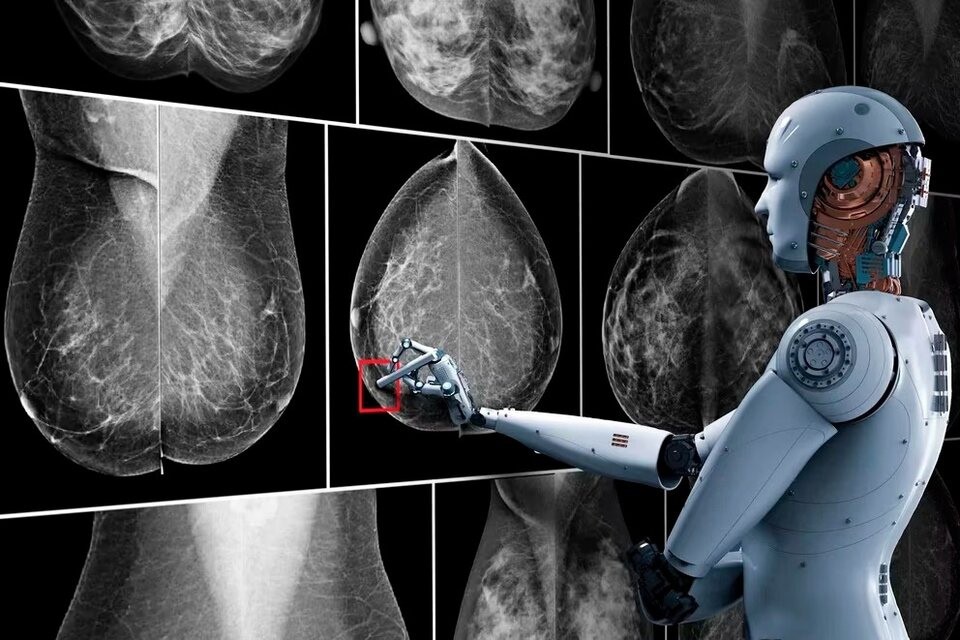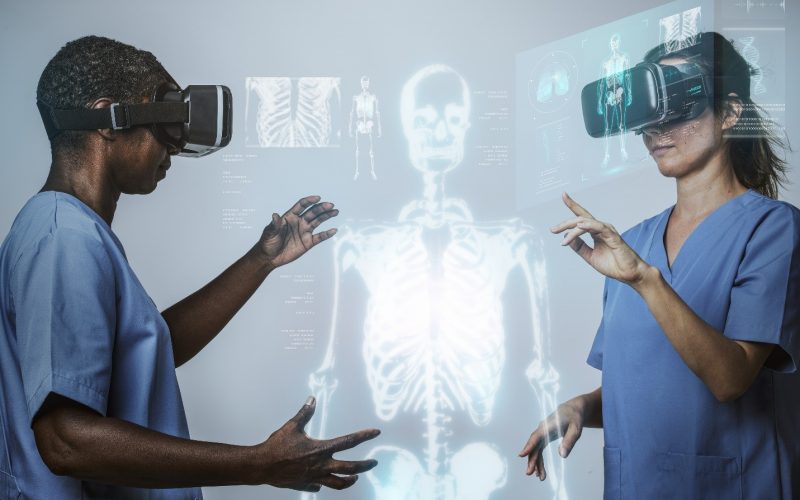The integration of Artificial Intelligence (AI) into the field of medicine is revolutionizing diagnostic practices, promising to enhance diagnostic accuracy and transform patient care. This transformative technology leverages vast amounts of data, sophisticated algorithms, and machine learning techniques to assist healthcare professionals in diagnosing diseases with unprecedented precision. This article explores the profound impact of AI on diagnostic accuracy in medicine, highlighting key advancements, challenges, and future prospects.
Understanding AI in Medicine
Artificial Intelligence, in the context of medicine, refers to the use of computational algorithms and machine learning models to mimic human cognitive functions. These AI systems analyze complex medical data, including images, genetic information, and patient records, to identify patterns and make predictions that can aid in diagnosing diseases. The primary goal is to enhance the accuracy, speed, and efficiency of medical diagnoses, ultimately improving patient outcomes.
Enhancing Diagnostic Accuracy
Radiology and Imaging
One of the most significant impacts of AI on diagnostic accuracy is observed in radiology and medical imaging. AI algorithms, particularly those based on deep learning, have demonstrated remarkable proficiency in interpreting medical images such as X-rays, MRIs, and CT scans. These AI systems can detect anomalies, such as tumors, fractures, and lesions, with a level of precision that rivals, and in some cases surpasses, that of experienced radiologists.
For instance, AI-powered imaging tools have shown great promise in early detection of cancers. A study published in the journal “Nature” highlighted an AI model developed by Google Health that outperformed radiologists in detecting breast cancer from mammograms. The AI system reduced false positives and false negatives, thereby improving diagnostic accuracy and potentially saving lives through earlier intervention.
Pathology
AI is also making strides in the field of pathology, where it assists in analyzing tissue samples and identifying disease markers. Traditional pathology relies heavily on the expertise of pathologists to examine slides under a microscope. However, AI-powered digital pathology platforms can analyze whole slide images with remarkable speed and accuracy. These systems can identify subtle morphological changes and quantify biomarkers, aiding in the diagnosis of conditions such as cancer, infectious diseases, and autoimmune disorders.
A notable example is the AI platform developed by PathAI, which has demonstrated high accuracy in diagnosing various types of cancer. By reducing inter-observer variability and providing consistent results, AI enhances diagnostic accuracy and supports pathologists in making more informed decisions.
Genomics and Precision Medicine
The advent of AI has also paved the way for advancements in genomics and precision medicine. AI algorithms can analyze vast genomic datasets to identify genetic mutations and variations associated with specific diseases. This capability is particularly valuable in diagnosing rare genetic disorders and tailoring personalized treatment plans.
AI-powered genomic analysis tools, such as those developed by Deep Genomics, use machine learning to predict the effects of genetic mutations on protein function. This information is crucial for diagnosing genetic diseases accurately and developing targeted therapies. By leveraging AI, clinicians can make more precise diagnoses and offer treatments that are tailored to the individual patient’s genetic makeup.

Overcoming Challenges
While the impact of AI on diagnostic accuracy is undeniably promising, several challenges must be addressed to fully realize its potential.
Data Quality and Bias
The accuracy of AI models heavily depends on the quality and diversity of the data they are trained on. Biased or incomplete datasets can lead to inaccurate predictions and reinforce existing healthcare disparities. Ensuring that AI systems are trained on representative and high-quality data is essential to avoid diagnostic errors and ensure equitable healthcare outcomes.
Integration into Clinical Workflows
Integrating AI into clinical workflows poses logistical and operational challenges. Healthcare professionals need to trust and understand AI systems to effectively incorporate them into their practice. Training and education are crucial to ensure that clinicians can interpret AI-generated insights and make informed decisions.
Regulatory and Ethical Considerations
The deployment of AI in medicine raises important regulatory and ethical questions. Ensuring patient privacy, data security, and compliance with regulatory standards is paramount. Additionally, ethical considerations regarding the transparency and accountability of AI systems must be addressed to maintain patient trust and confidence.
Future Prospects
The future of AI in medicine holds immense potential for further enhancing diagnostic accuracy and improving patient care. Several trends and developments are likely to shape this landscape.
Explainable AI
As AI systems become more complex, there is a growing need for explainable AI (XAI) that can provide transparent and interpretable insights. XAI aims to make AI-generated predictions understandable to clinicians, enabling them to trust and validate the results. This transparency is crucial for gaining widespread acceptance and ensuring that AI systems are used responsibly.
Collaborative AI
The future of AI in medicine is likely to be characterized by collaboration between AI systems and healthcare professionals. Rather than replacing human expertise, AI will augment and support clinicians in making more accurate diagnoses. Collaborative AI models, where AI and human experts work together, have the potential to achieve the best of both worlds—combining computational precision with human intuition and experience.
Continuous Learning and Adaptation
AI systems in medicine will continue to evolve and improve through continuous learning and adaptation. As more data becomes available and AI models are exposed to diverse clinical scenarios, their diagnostic accuracy will further enhance. This iterative process will ensure that AI systems remain up-to-date and relevant in an ever-changing healthcare landscape.
Conclusion
The impact of AI on diagnostic accuracy in medicine is profound and far-reaching. From radiology and pathology to genomics and precision medicine, AI is transforming the way diseases are diagnosed and treated. By leveraging advanced algorithms and machine learning techniques, AI enhances diagnostic accuracy, reduces errors, and supports healthcare professionals in delivering high-quality care.
However, realizing the full potential of AI in medicine requires addressing challenges related to data quality, integration, and ethical considerations. As the field continues to evolve, the future promises even greater advancements in diagnostic accuracy through explainable AI, collaborative models, and continuous learning.
Ultimately, the integration of AI into diagnostic practices represents a paradigm shift in medicine, offering new possibilities for early detection, personalized treatment, and improved patient outcomes. As AI technology continues to advance, its impact on diagnostic accuracy will undoubtedly shape the future of healthcare for the better.








